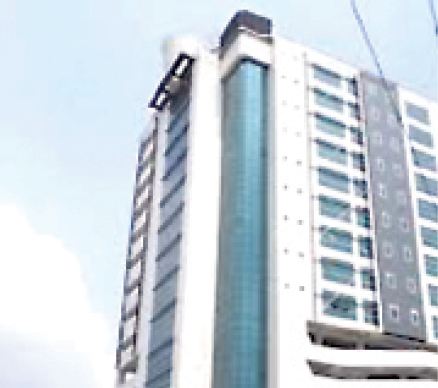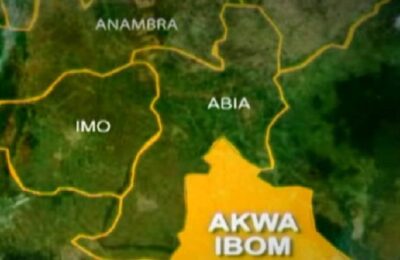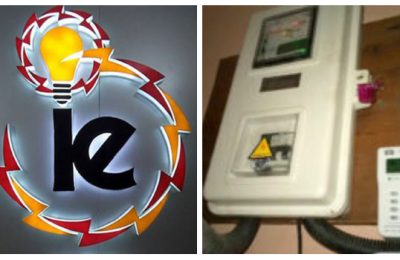

The four years tenure of former Director-General of NIMASA, Dr. Bashir Jamoh, came to an end on March 10. In this report, TOLA ADENUBI looks at the tasks ahead of Dr. Dayo Mobereola, who has taken over in substantive capacity, for the next four years. Excerpts:
President Bola Ahmed Tinubu has appointed Dr. Dayo Mobereola as the substantive Director General of the Nigerian Maritime Administration and Safety Agency (NIMASA) following the expiration of the four years tenure of Dr. Bashir Jamoh which began on the 13th of March, 2020 and came to an end on the 10th of March this year.
As the maritime industry awaits the commencement of a new era at the nations Maritime Administration, the following tasks are some of the issues the substantive DG will have to contend with for the next four years.

CVFF
Top on the list of unfinished business in NIMASA is the disbursement of the Cabotage Vessel Financing Fund (CVFF) which has continued to grow from a paltry $100m in 2017 to over $700m as at 2022.

While there was very high hope among industry operators that the CVFF, which had remained undisbursed for more than a decade, will finally get disbursed following the appointment of a thorough bred maritime insider, Dr. Bashir Jamoh as DG of NIMASA in 2020; four years down the line, the disbursement of the fund has remained elusive.

In December 2022, the former Minister of Transportation, Muazu Jaji Sambo, announced that the Federal Government has chosen five banks namely Union Bank, Polaris Bank, Zenith Bank, UBA and Jaiz to serve as Primary Lending Institutions (PLIs) for the disbursement of the CVFF to Nigerian shipowners to enable them to acquire vessels.
However, with the banks demanding an 8.5 percent Interest Rate to disburse the CVFF funds to indigenous shipowners, many shipowners kicked and subsequently, NIMASA announced a rejection of the banks offer, leaving the funds undisbursed till date.
“We are still discussing back and forth with the PLIs and unless we are sure we are getting the best deal that can help the stakeholders, we will never accept any PLI imposing unnecessary guidelines or interest rate. These are the core issue. The issue of interest rates will be dealt with and if we complete the issue of those grey area, then we will disburse the fund before the end of the regime and if we didn’t finish when the new regime comes, we will continue and they will advise us on the way forward. But we don’t want to put any liability on the stakeholders or government,” the NIMASA DG told newsmen recently.
Floating dock
In 2018, NIMASA embarked on an ambitious move to wrest back to Nigeria billions of revenues lost to ships who, after visiting the nation’s ports, go to neighbouring ports in West and Central Africa to dry-dock their vessels. The acquisition of the Floating Dock was a masterstroke that was expected to change the face of dry-docking services in the West African sub-region.
According to the International Maritime Organisation (IMO), every vessel undergoes dry-docking once every three years in order to retain its safety classification and insurance cover. It costs between $300,000 and $500,000 to dry-dock a vessel, according to prevailing international rates. On the average, 5,000 ships, 400 active coastal vessels and several hundreds of fishing trawlers call at Nigerian ports annually, with all of them getting dry docking services elsewhere.
The NIMASA Floating Dock was expected to generate N1bn monthly and N12bn yearly after its arrival in the nation’s waters in 2018. However, more than six years after that historic arrival, the Floating Dock is yet to be used for dry-docking services.
A statement signed in February 2024 by the agency’s Head of Public Relations, Edward Osagie, said that it is lifting out the cylindrical spuds of the Floating Dock to be prepared for piling at the Continental Shipyard, where the Floating Dock is scheduled to commence operations.
“These spuds have to be firmly installed before we can tow the floating dock there. We assure stakeholders that very soon, Nigeria will save foreign earnings with the commencement of operations at our dock,” the NIMASA statement read in February.
Ship registration
Each merchant ship is required by international law to be registered in a registry created by a country, and a ship is subject to the laws of that country, which are used also if the ship is involved in a case under admiralty law. A shipowner may elect to register a ship in a foreign country which enables it to avoid the regulations of the owners’ country which may, for example, have stricter safety standards. They may also select a jurisdiction to reduce operating costs, avoiding higher taxes in the owners’ country and bypassing laws that protect the wages and working conditions of mariners.
The Liberian flag is the most sought-after for shipping investors during vessel registration process in West Africa and is the second most popular flag flown by international cargo ships worldwide, generating a huge source of revenue for the country.
The odds stacked against the Nigerian flag remains a huge challenge that has to be surmounted by Mobereola for the next four years.
Safer waters
The former NIMASA management has done so much to ensure safety along the nation’s waters vis-à-vis the Gulf of Guinea through the implementation of assets under the Integrated National Security and Waterways Protection Infrastructure, also known as the Deep Blue Project.
For whoever comes in as DG NIMASA for the next four years, maintenance of the sanity being enjoyed on the nation’s waters with a plan to even improve upon it will be a priority. The NIMASA DG will be heavily weighed and scrutinised through happening on the nation’s waters in terms of security. The months of zero attack or spike in attacks on ships will define the future of the Mobereola DG. The ability of the agency to sustain collaboration with the Nigerian Navy in enforcing peace and tranquility on the nation’s waters will go a long way in shaping the scorecard for Mobereola.
Read Also: Tinubu writes Senate, replaces nominee for CBN Board







